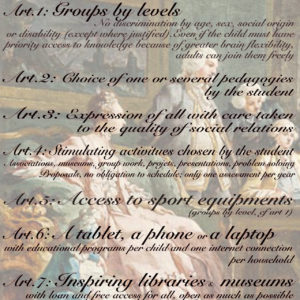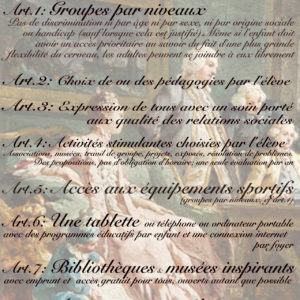Don’t think, don’t try to understand,
Just watch.
Un gars Une fille – The best way to learn everyday French every day:
Un gars une fille – one episode a day (6 min): https://www.youtube.com/results?search_query=un+gars+une+fille
Imdb: http://www.imdb.com/title/tt0217224/fullcredits?ref_=tt_ov_st_sm
Apprendre le français avec TV5 Monde : https://apprendre.tv5monde.com/fr
The Anki App to make flashcards to learn vocabulary and complete sentences – Use it daily: https://apps.ankiweb.net/
Use Deepl or Larousse to translate what you do not understand, then put these words / sentences in an Anki flashcard to learn them: https://www.deepl.com/en/translator and https://www.larousse.fr/dictionnaires/francais-anglais
Why Scandinavians speak exceptional English – The polyglot dream: http://www.thepolyglotdream.com/scandinavianenglish
The Scandinavian Countries: Why Are They So Good At Speaking English?: https://crystalcleartranslation.com/the-scandinavian-countries-why-are-they-so-good-at-speaking-english/#:~:text=Constant%20exposure%20to%20the%20English,acquisition%20of%20foreign%20language%20skills









